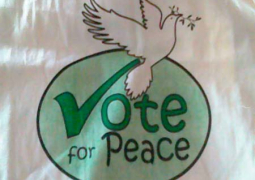The National Organization for Disabled and Orphans (NODO) recently held a one-day forum aimed at developing a three-year strategic development plan for the local NGO.
The planning meeting was held at GAMCOTRAP conference hall in Kanifing thanks to the partnership support of the women’s rights NGO.
Speaking at the opening ceremony, Lamin Manneh, chairperson of NODO, called on the Government of The Gambia to ratify the Convention on the Rights of Persons with disabilities and provide tangible policies to support and promote equal opportunities for all regardless of physical impairment.
According to him, since 1994 the bill has generated a lot of discussion but it has still not been ratified.
“The
Thus NODO has resolved to engage in developing and improving the conditions of disabled persons in a bid to promote their fundamental rights as individuals.
According to Mr Manneh, about ninety per cent of disabled persons in The Gambia are beggars, whose begging has not improved their condition and livelihood.
NODO is working tirelessly to curb the menace of begging through the acquisition of life skills thus create and promote job opportunities, as well as lobby for projects to sustain the organization’s activities.
“Those of us who have skills should be supported with means and those who don’t should be empowered with skills to be able to earn their living, rather than becoming beggars in the streets,” he asserted.
According to Manneh, this historic forum being hosted and financed by GAMCOTRAP is a clear manifestation that they are key partners in leaving no stone unturned in terms of supporting such organizations working with the physically challenged.
“All what we need is support and then we will be able to employ ourselves and thus contribute our quotas in national development,” he added.
“As a legally established organization for the disabled, we are appealing to all stakeholders such as government, NGOs as well as the United Nations agencies to help in addressing the plight of people with disabilities to minimize the menace of begging in streets and in public places, which makes them sometimes vulnerable to risks.”
For her part, the Executive Director of GAMCOTRAP, Dr Isatou Touray, spoke at length on the importance her organization attaches to supporting and promoting people with disabilities.
According to her, the UN, in its Universal Declaration of Human Rights and the international covenants on human rights, has proclaimed and agreed that everyone is entitled to all rights and freedom set forth therein, without distinction of any kind.
Senior programme coordinator at GAMCOTRAP, Mary Small, pointed out that a study conducted on the experiences of differently-able female victims of violence and discrimination in The Gambia revealed that the negative perceptions of the public towards disability have resulted in depressing attitudes against differently-able persons, both in terms of decision-making and equal participation, and in community development.
The study, according to her, revealed that 80 per cent of the differently-abled, especially the visually impaired, were never involved in social ceremonies, community development or decision-making on national issues.
All the subjects interviewed expressed the need for some form of social inclusion. Thirteen per cent of the hard-of-hearing and 17 per cent of the physically-disabled expressed the need for loans or financial support to start a business, she said.
“Sixty-five per cent of the visually impaired - beggars who struggled to earn a living, requested support. All of them indicated that they needed financial support as they had no better survival strategies.”
The hard-of-hearing have difficulty understanding what is being said; the physically disabled have problems with their wheelchairs going on bad roads and would need escorts, and the blind say they were belittled by people who ask them, “What can a blind woman do?” The disabled people are often denied access to public places because of architectural barriers or discriminatory attitudes.
“Visually-impaired women, especially the elderly, lead isolated lives, unable to go out of their own homes or even move around adequately at home,” she remarked.
“Some of the women had been provided with white canes but they were not confident in using them for months after they had acquired the canes and they still needed an escort,” she remarked.


